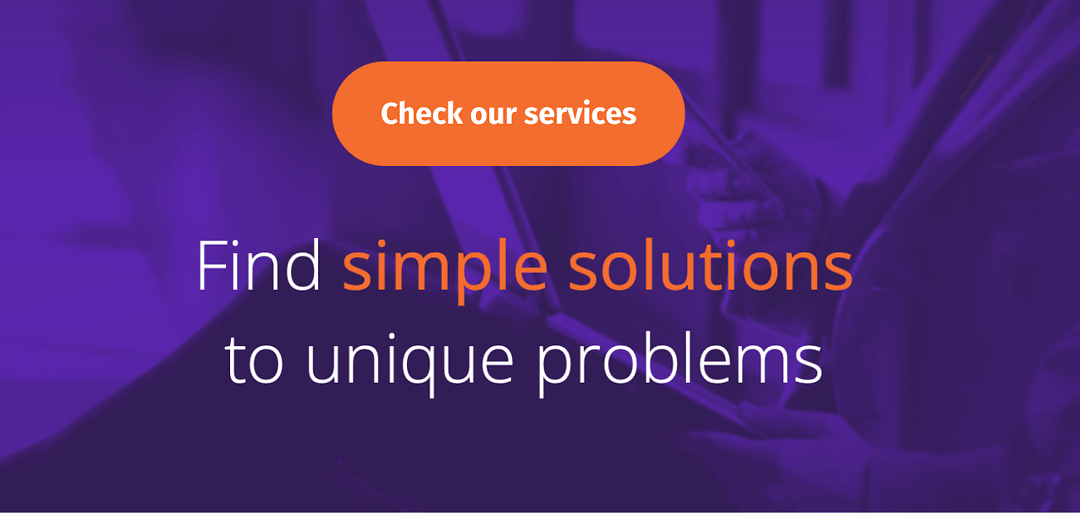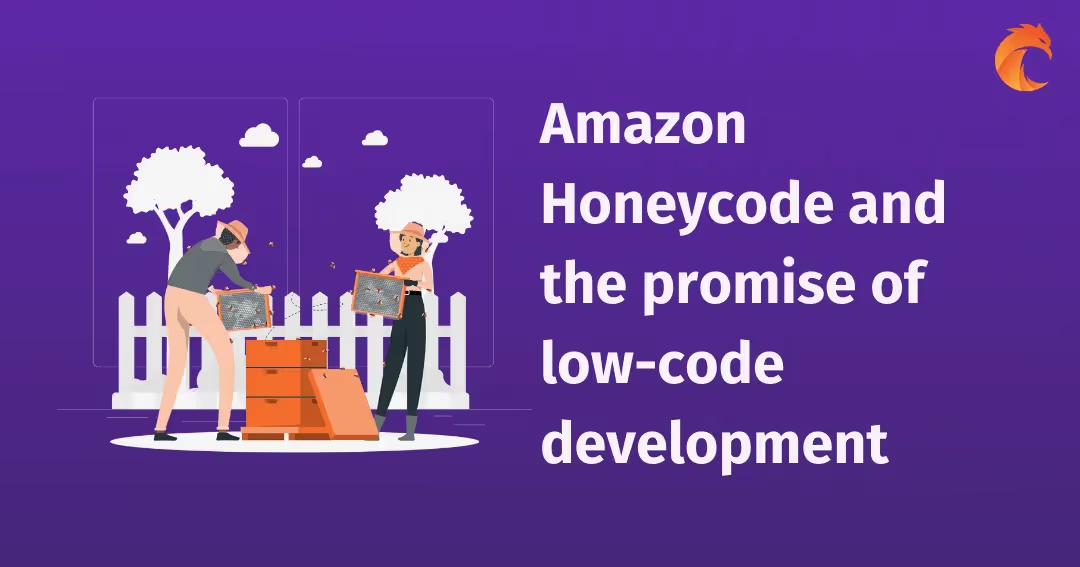What is App Scaling and why Elixir is Perfect for Scalable Applications?


If you're in the business of developing mobile or web apps, then you're probably constantly on the lookout for ways to make your app more successful. App scalability should be one of the most important factors to take care of.
What is App Scalability?
Put simply - scalability allows your application to serve a growing number of users as your business grows.
Think about it this way: when you first launch your app, you might only have a few hundred or thousand users. But what happens when your app suddenly becomes popular, and you have tens of thousands of users? Or even millions of users?
If your app isn't scalable, then it won't be able to handle the increased load and will likely crash. That's why scalability is so important; it allows your app to grow with your business.
Why does App Scalability Matter?
There are a few reasons why scalability is so important for mobile apps.
First and foremost, if your app can't handle increased users, you'll lose out on potential customers. People are unlikely to use an app that is constantly crashing or doesn't work well. In addition, if your app isn't scalable, you'll also miss out on growth opportunities. Finally, if your app can only handle a limited number of users, you will not be able to take advantage of a sudden surge in popularity.
Scalability is also important from a financial perspective. If your app isn't scalable, you will have to spend more money on infrastructure as your business grows. This can quickly become cost-prohibitive and put a strain on your resources. On the other hand, if your app is scalable, you can save money in the long run by investing in the right infrastructure upfront.

How to Make Your App Scalable?
You can do a few things to make sure your app is scalable. Here are four of the most important ones:
Cloud Computing
Cloud computing is internet-based computing that provides shared computer processing resources and data to computers and other devices on demand. It is a scalable way to store, process, and manage data.
With cloud computing, businesses can quickly scale their apps up or down without investing in additional infrastructure.
Caching
Caching is a technique used to improve the performance of an app by storing frequently accessed data in a temporary memory location.
When a user requests cached data, the app can retrieve it from the cache instead of fetching it from a remote server. This reduces the amount of time and resources needed to process the request, which in turn improves performance. In addition, caches can be scaled up or down as necessary to effectively handle increased traffic without negatively affecting performance.
Load Balancing
Load balancing is a technique that distributes workloads evenly across multiple servers so that no single server is overwhelmed. This helps to improve performance by ensuring that each server has adequate resources available to process requests efficiently.
In addition, load balancing can help prevent outages by redirecting traffic away from overloaded servers to other available servers. Load balancers can be scaled horizontally (adding more servers) or vertically (adding more resources to existing servers) to meet increased traffic demands.
Don't forget that programming language matters!
Relevant programming languages
One of the most critical factors affecting the performance and scalability of the application is the selection of the appropriate programming language.
There is no one-size-fits-all solution. The right programming language for one project may not be well suited for another. For example, a language appropriate for small applications may not be scalable enough for famous global apps. As a result, it is crucial to choose the right programming language for your application.
By following these best practices, you can ensure your application is scalable and ready to grow.
Benefits of creating scalable applications
Creating applications that can grow and evolve with those changes is essential in a world where technology is constantly changing. By creating scalable applications, businesses can provide a better user experience, improve app performance, and save money in the long run.
Let's take a closer look at some of the benefits of creating scalable applications.
User Experience
Scalable applications provide a better user experience because they can handle more users without slowing down or crashing. This is especially important for businesses that rely on their applications to generate revenue.
If an app is constantly crashing or running slowly, users will quickly become frustrated and may delete the app or stop using it altogether.
App Performance
Scalable apps not only provide a better user experience but can also improve app performance. This is because scalable apps run efficiently even when more users access the app simultaneously.
Application Stability
Scalable applications are also more stable, making them less likely to crash or experience downtime - there are designed to handle increases in traffic and usage.
Feature Customization
Another benefit of scalable apps is that they can be easily customized to meet a business's specific needs. In addition, scalable apps are built on modular architectures that allow features to be added or removed as necessary.
Non-scalable apps often have inflexible architectures that make it difficult or impossible to customize them without incurring high costs.
Usage Surges
Scalable apps can also handle a sudden surge in traffic or usage without experiencing any problems. This is because they are designed from the ground up to gracefully handle increases in traffic and usage.
Saves money
In addition to providing a better user experience and improved performance, scalable apps can also save businesses money in the long run. Scalable apps are designed to grow with a business's needs, meaning they don't need to be rebuilt every time there's an increase in traffic or usage.
Conversely, non-scalable apps may need to be rewritten entirely each time there's an increase in traffic or use, which can be costly and time-consuming.
Positive User Feedback
Finally, businesses that create scalable app experiences often receive positive feedback from users who appreciate being able to use an app that doesn't crash or slow down when there's an increase in traffic or usage levels. Positive user feedback can lead to increased downloads and higher retention rates, which can positively impact a business's bottom line.
How to Determine If Your App Is Scalable?
To determine if your app is scalable, here are four main factors you need to consider: response time, screen transitions, throughput, and requests per second. Let's look at each of these to understand how they impact scalability.
Response Time
The response time is the amount of time it takes for your app to respond to a user's action. For example, how long does it take for the next screen to appear if a user clicks on a button? Ideally, you want your app to respond in real-time, so there is no noticeable lag. However, if there is a delay, it needs to be short enough that the user does not become frustrated.
Screen Transitions
Users who interact with your app will be taken from one screen to another. How quickly and smoothly these transitions happen will have an impact on the scalability of your app. If the growth is slow or janky, it will frustrate users and cause them to look for another app that provides a better experience.
Throughput
The throughput is the amount of data your app can process without issue. As more and more users use your app, more data will be transferred and processed. If your app cannot handle the increased load, it will crash. To avoid this, you must ensure that your app has sufficient throughput.
Requests Per Second
The number of requests per second (RPS) is the number of actions or demands your app can handle in a single second. Again, as more users use your app, the number of requests will increase. If your RPS is too low, your app will crash under pressure. A tool like jmeter can help check this statistic before getting to a high server load.
How to choose the right programming language for a scalable application?
No one-size-fits-all answer is when choosing the correct programming language for a scalable application. Instead, the best language for the job will depend on several factors, including the app's nature, the development team's technical skills, and the preferred tech stack.
However, some general considerations should be considered when making a decision. First and foremost, the language should be scalable itself - that is, it should be able to handle increasing workloads without performance degradation. Secondly, it should be compatible with the other technologies in the stack, and thirdly, it should have a robust ecosystem of libraries and tools.
With these factors in mind, it's then possible to shortlist a few languages that may be suitable for the task at hand.
Why Elixir programming language is the best choice for scalable applications?
Choosing the right programming language is crucial for efficient and scalable applications. Elixir is one of the best scalable functional languages based on the Erlang Virtual Machine.
Erlang is a virtual machine that runs concurrent, scalable and distributed applications. It is used in various applications, including embedded, gaming, chat, and e-commerce platforms. Elixir as a functional language was created to address many issues with other languages, such as OCaml and Haskell. It combines the best features of these languages with a focus on developer productivity and scalable apps.
Elixir has excellent tooling and a supportive community. These factors make it a perfect choice for developing scalable apps.
Benefits of using Elixir language
If you're looking for a language that offers excellent performance, fault tolerance, scalability, and more, you should strongly consider Elixir. It comes with the Phoenix framework, which makes it easy to build scalable web applications. And if you need help or have questions, the friendly Elixir community is always happy to assist.
Here are some more reasons Elixir may be the right choice for your next project.
Performance
Elixir was designed for high performance from the ground up. It compiles down to bytecode that runs on the Erlang VM, which is known for its great performance. In addition, Elixir takes advantage of Erlang's battle-tested concurrent processes to achieve impressive parallelism capabilities. As a result, your app will be able to handle large amounts of traffic without issue.
Fault tolerance
Elixir's fault tolerance is one of its most impressive features. Thanks to its concurrent processes, if one part of your app goes down, the rest can continue functioning normally. This is vital for businesses that require high uptime and can't afford even a few minutes of downtime.
Scalability
As your user base grows, you'll need a language that can easily handle the increased traffic and load. With Elixir's concurrent processes and excellent fault tolerance, scalability isn't an issue - you can add more resources as needed without having to rework your codebase.
If you choose Elixir for your next project, you'll also get access to the Phoenix framework. Phoenix was explicitly designed for building a scalable web app with Elixir that uses lightweight processes (much less resources consumption needed than in system process) to handle each requests in parallel. It has many features that will make development easier and faster, such as built-in helpers and form validation.
Community
Elixir has a friendly and helpful community that's always willing to answer questions or offer assistance—you'll never feel alone when working with this language. Additionally, because Elixir is still relatively new (it was first released in 2011), you'll often be able to get help from core team members who created the language in the first place!
Concurrency
Concurrency is built into Elixir thanks to its Erlang roots. This means you won't have to worry about race conditions or other concurrency issues when building your app—everything will work as it should without extra effort.
More Reliable Code.. with Functional Programming language!
With all these amazing benefits, it's no wonder why so many developers are choosing Elixir for their next project! If you're looking for a language that offers great performance, superior scalability, excellent fault tolerance, and more, look no further than Elixir—you won't be disappointed.
Summary
As your business grows, it's essential to make sure your app can scale. App scalability is the ability of your app to handle an increasing number of users as your business expands. There are a few reasons scalability is so important, including that if your app isn't scalable, you could miss out on opportunities for growth or spend too much money on infrastructure costs.
Luckily, you can do a few things to make sure your application is scalable, such as choosing appropriately scalable programming languages.
By following these best practices, you can ensure that your mobile app is prepared for success.
Ready to scale your business with the right tech partner?
Related posts
Dive deeper into this topic with these related posts
You might also like
Discover more content from this category
“Building apps” is actually an extremely wide subject. From complex, machine learning assisted solutions for tough business cases, up to simplistic planners and message boards, you get what you put in.
The answer of a curious IT Recruiter. A lot of sites that give solutions to the dilemma of many developers - which type of company to choose. Most of those examples are from the CEO or a long-term employee perspective.
Why and how to prepare for the promotion of your application or SAAS system long before the premiere? Is the MVP stage a good moment to start marketing activities? How to promote your early-stage app and why you should do this?






